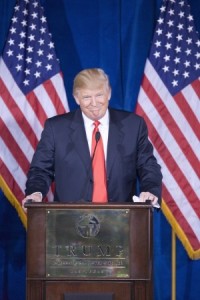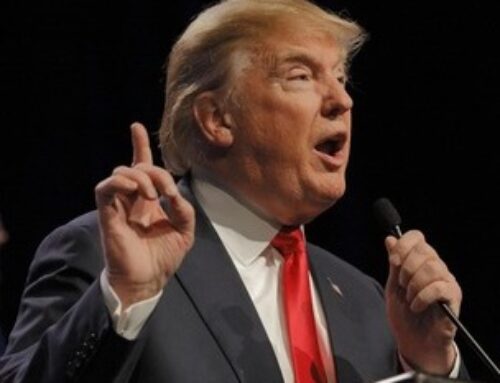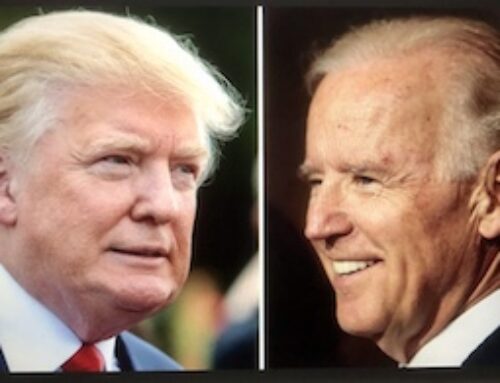 Since Donald Trump began campaigning for the presidency a year ago, his name-calling and denigration of individuals and groups and self-congratulatory proclamations have been continually reported and criticized. (See, for example, “The GOP Nightmare.”) So much as been said, in fact, that one might conclude there is nothing to add. Yet there are several important criticisms of Donald Trump that have not been made, or at least have not been given the attention they deserve.
Since Donald Trump began campaigning for the presidency a year ago, his name-calling and denigration of individuals and groups and self-congratulatory proclamations have been continually reported and criticized. (See, for example, “The GOP Nightmare.”) So much as been said, in fact, that one might conclude there is nothing to add. Yet there are several important criticisms of Donald Trump that have not been made, or at least have not been given the attention they deserve.
One is an affliction I call wanderitis—the seeming inability to control the direction of his speaking, which suggests a more serious inability to manage his thoughts. It is natural enough to have one thought intrude on another, and a third on that one. Disciplined thinkers focus on one at a time while holding the others to the side. Trump seems unable to exercise that discipline.
Another is his vocabulary deficiency. I am not referring to his passive vocabulary, words that he understands when others use them but seldom uses himself. (That vocabulary is no doubt large.) I mean, instead, his active vocabulary, the words he actually uses. This deficiency is manifested in his overreliance on a small number of words, notably amazing, fantastic, incredible, unbelievable, tremendous, enormous, beautiful, overrated, disgrace, catastrophic, winning, losers (and total losers).
Trump’s vocabulary deficiency is also notable in his frequent repetition of sentences. For example, “I want security for this country, okay? I want security.” Also, “I have many women at high positions. You know I’ve gotten a lot of credit for that, I mean I have so many women working for me and so many women in high positions working for me and I’ve gotten great credit for it.”
Having an unusually modest vocabulary is not necessarily a sign of intellectual deficiency, but it increases the chance of verbal imprecision, and that is a definite handicap in communicating about complex problems and issues.
A third problem for Trump is overgeneralization. For example, his remarks about Mexicans seem to be about all Mexicans. The same is true of his remarks about immigrants, Muslims, and women. This is not just unfair, as virtually every critic of Trump has noted. It also denotes an incapacity to make important distinctions—in other words, an inability to perceive differences as well as similarities among people or ideas, which leads inevitably to oversimplifying reality. This explains why when Trump makes a valid, even insightful, point, he often overstates it.
All three of these problems suggest that, despite his skill in identifying and speaking to the frustrations and concerns of the electorate, Donald Trump is not a very good thinker. Given his educational background, this may seem unlikely. After all, he graduated from the Wharton School at the University of Pennsylvania. But he could conceivably have gotten by with bluster and swagger. And his business acumen could reflect a narrow kind of cleverness rather than broader intellectual skill. In any case, if he is a more skilled thinker than he has demonstrated, it is difficult to imagine why he has been content to hide that fact.
Over the last few weeks, Trump’s performance has improved dramatically. He seldom wanders during his speeches. His presentations are better constructed and coherent, his vocabulary more varied and mature, and his references to people and ideas more nuanced and balanced.
One possible explanation for this change is that he decided to put aside bombast and bluster and reveal the deeper thinker that has always been there. Another is that there is no deeper thinker, just a man who overcame his arrogance sufficiently to have his speeches prepared by professional wordsmiths and to use a teleprompter. Unfortunately, it will not be easy to tell which is the case
Copyright © 2016 by Vincent Ryan Ruggiero. All rights reserved

